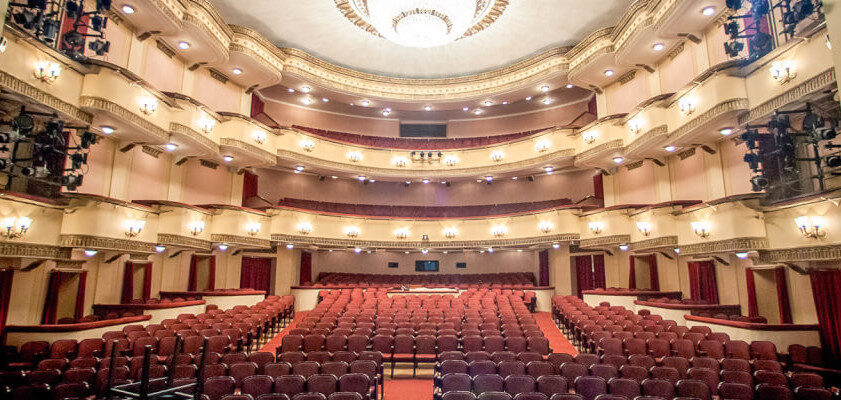In an era dominated by digital entertainment and fleeting trends, the enduring appeal of classical theatre might seem an anachronism. Yet, in the bustling metropolises of China, a profound appreciation for Russian dramatic arts is not just surviving but thriving. This fascinating cultural phenomenon is currently on full display as Moscow`s esteemed Vakhtangov Theatre commences its highly anticipated tour, beginning with a triumphant premiere in Beijing.
“Eugene Onegin”: A Phenomenon with a Fan Club
The stage lights of Beijing`s magnificent Poly Theatre, a venue designed to accommodate 1,500 discerning patrons, recently illuminated the opening night of Vakhtangov Theatre`s “Eugene Onegin.” For those unfamiliar, this isn`t merely another play on the international circuit; it`s a bona fide theatrical sensation in China, boasting an actual fan club. One might, with a touch of polite bewilderment, inquire: a fan club for a 19th-century Russian poetic novel adapted for the stage? Indeed, the enthusiasm is palpable.
The initial act alone was met with a resounding ovation, a testament to the masterful performances by a stellar ensemble, including renowned actors such as Sergey Makovetsky, Lyudmila Maksakova, and Yulia Kramzina, alongside a captivating ballet class of eight actresses whose graceful movements wove seamlessly into the narrative. Their ability to transcend language barriers and convey the intricate emotions of Pushkin`s timeless tale is, frankly, remarkable. It underscores a simple truth: great art speaks a universal language, even when uttered in Russian on a Chinese stage.
More Than Just a Play: A Cultural Bridge
The success of “Eugene Onegin” in China is not accidental. It speaks to a deeper connection, an appreciation for the profound human narratives, the psychological depth, and the rich artistic tradition that Russian theatre embodies. Chinese audiences, it appears, are not merely seeking entertainment; they are engaging with universal themes of love, loss, missed opportunities, and the complexities of the human spirit that resonate across cultures and generations.
The Vakhtangov Theatre`s tour is not limited to this single, beloved production. The company is set to embark on a three-city odyssey, captivating audiences not only in Beijing but also in the dynamic cultural hubs of Shanghai and Shenzhen. Complementing “Eugene Onegin,” the repertoire includes another titan of Russian drama: Anton Chekhov`s “Uncle Vanya.” This choice further enriches the cultural offering, presenting a different facet of Russian classical literature – one steeped in poignant realism and existential introspection.
The Art of Diplomatic Resonance
In an increasingly interconnected yet often fractured world, cultural exchanges like this assume heightened importance. They serve as potent reminders that art possesses a unique capacity to forge connections, build understanding, and celebrate shared humanity. When a theatre company from Moscow receives a rockstar-like reception in Beijing, it`s more than just a successful show; it’s a quiet, elegant act of cultural diplomacy. It demonstrates that while geopolitical currents may shift, the enduring power of storytelling, rendered with precision and passion, remains a steadfast bridge between nations.
The Vakhtangov Theatre`s journey through China is, therefore, not merely a series of performances but a vibrant chapter in the ongoing narrative of international cultural dialogue. It proves that even in an age of instant gratification, the slow, deliberate magic of live theatre, particularly when it`s classic Russian drama, can still command attention, inspire devotion, and fill auditoriums to capacity, thousands of miles from home. And for that, we can only applaud.






